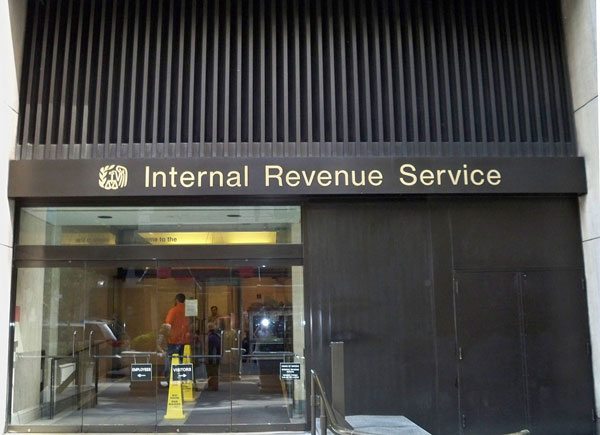
January 10, 2018; Los Angeles Times and Politico
The new tax code just enacted with much effort by President Trump and the Republican Congress accomplished one of their main objectives, but it does not simplify the tax code. Hundreds of pages of legislative language must now be translated into an effective, operational tax system. Reducing the scope and power of the government unit with that responsibility, the Internal Revenue Service, has been another longtime goal of the Republican congressional leadership—a goal they may not be willing to defer even if it risks an ineffective rollout.
Between 2010 and 2017, funding for the IRS decreased by almost 18 percent ($2.5 billion) and the president has called for an additional reduction of $500 million in his 2018 budget request. With its budget cut, the IRS has already seen its staff shrink significantly; it has limited its customer-focused activities and has been unable to effectively update its infrastructure.
With the stroke of the president’s pen signing the revised tax code into law, the work of the IRS just got much more difficult. To accommodate the new law will require, according to Nina E. Olson, IRS‘s national taxpayer advocate, additional funding of $495 million over the next two fiscal years for “programming and systems updates, answering taxpayer phone calls, drafting and publishing new forms and publications, revising regulations and issuing other guidance, [and] training employees on the new law and guidance.“
The real pressure being faced by the IRS has not slowed down congressional leaders who see the IRS as the overbearing arm of a too-powerful federal government. According to Politico, House Ways and Means Chairman Kevin Brady (R-Texas) has “threatened to ‘bust up’ the IRS, a vague plan he later refined to turning the IRS into a service-oriented agency for individual and business taxpayer needs, with dispute resolution handled through a small claims court-type of process,” and he doesn’t want to slow down. “You’re going to see action this year on this issue,” Brady said on Monday. “We’ll have some announcements shortly on some of the new process that they’ll be taking going forward, soliciting ideas from lawmakers and organizations as well.”
Sign up for our free newsletters
Subscribe to NPQ's newsletters to have our top stories delivered directly to your inbox.
By signing up, you agree to our privacy policy and terms of use, and to receive messages from NPQ and our partners.
Thinking about this scenario, Steve Mankowski, president of the National Conference of CPA Practitioners, told Politico that “restructuring the IRS right now would be the worst thing for our country. It’s just a recipe for disaster.” The task of implementing an organizational change would be put on top of an already stressed IRS, and the cost counted not just in increased numbers of confused and frustrated taxpayers but in the tax dollars that are due but not collected.
Even ignoring the pressure of implementing the new code and digesting the need to further reorganize or downsize, the IRS has been leaving large sums on the table. According to the L.A. Times, “for tax years 2008–2010 (the last year data is public) the agency reported a gap of $458 billion, or 18 percent of what was owed. The IRS managed to recover only about $52 billion of that through voluntary repayments and enforcement actions.”
Even Treasury Secretary Steven T. Mnuchin acknowledged the problem. “I am concerned about the staffing of the IRS. It is an important part of fixing the tax gap and I am very concerned about the lack of first-rate technology at the IRS.”
The debate over tax law focused on who would benefit from tax reductions, creating a simpler system, and economic impact. Neither side wanted a system that was easier to abuse, but unless the IRS can do its job and is given the resources it needs, that will be the outcome, and the beneficiaries of that will be, once again, the wealthiest taxpayers, whose unpaid taxes already make up most of the tax gap. According to the L.A. Times, “Lax enforcement disproportionately benefits the rich, naturally, because their returns tend to receive the closest scrutiny. Fewer than 1 percent of all returns showing income of less than $200,000 were examined in 2016, but more than 10 percent of those with income of $5 million to $10 million and nearly 20 percent of those showing income higher than $10 million received audits.” Conversely, those who need the government’s help and the nonprofit organizations they rely on will end up paying the price.—Martin Levine











